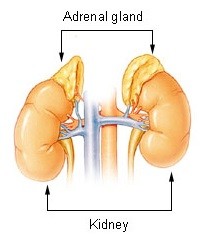We have become experts in health issues
Never before has so much attention been paid to physical health as in our times.
At what other time have the young, and not-so-young, become as determined to achieve a good physique as now? It is surprising to see 15-year-old boys and girls going on diets and taking up exercise regimes in quest of a perfect body. More and more people are able to identify foods that are good or bad for their health. Children and adults are encouraged and enabled to self-direct their diets and exercises, thanks to professionals who share their knowledge on YouTube and other platforms. Today, terms such as aerobic or anaerobic activity, saturated and unsaturated fats are used with complete naturalness, when just a few years ago only sports coaches, nutritionists and athletes knew about them.
However, does this concern for physical health also manifest itself on a mental level?
Would you be able to tell what things are good or bad for your mental health?
There is a famous sports brand called ASICS, which is an acronym for anima sana in corpore sano, which can be translated as “a healthy mind in a healthy body”. It is true that bodily health has an impact on mental health, but it is also true that psychological balance greatly influences bodily well-being. Health professionals know that when a person is subjected to a great deal of stress, it can manifest itself through illness. Therefore, it is very important to know what factors affect our mental health..
It is said that in some countries criticism has become a national sport.
In practically all work environments, it is acceptable to speak ill of the boss or to complain about colleagues when they are not present. This practice is so common that if you only speak well of people, it is perceived as hiding something. Unfortunately, badmouthing others has become normal, even sometimes among “friends”.
Denigrating others seems to provide an outlet for all one’s frustrations and personal suffering. One tries to release inner tension by disapproving of others in the mistaken belief that, like sharing one’s regrets with others, it is good for mental health.
However, what happens in our bodily organism when we criticize?
The Spanish psychiatrist, Marian Rojas (see lecture), explains that “talking badly about others initiates a toxic emotional state”. As she explains in her book, “Know Your Brain, Enhance Your Life”, when we criticize others, the body releases the steroid hormone cortisol, which is the same substance that is secreted when we are in stressful situations or when we have had little sleep. This hormone is especially dangerous for physical health. Cortisol is produced by the adrenal gland, which has the function of increasing blood glucose, suppressing the immune system and collaborating in the metabolism of fats, proteins and carbohydrates. A layman’s explanation of these functions is set out below.
What negative effects does cortisol have on the body?
Diabetes, hypertension, infertility, obesity and osteoporosis are some of Cortisol’s detrimental effects. The hormone promotes the increase of glucose in the blood and, therefore, increases the incidence of diabetes. In addition, this substance is an anti-diuretic, which means that in reducing urination, liquids accumulate in the body, generating hypertension. Additionally, it has been shown that high cortisol levels reduce fertility and increase the likelihood of miscarriage. Furthermore, there is a direct relationship between cortisol and obesity. Finally, cortisol decreases bone formation, causing osteoporosis in the long term, with the consequent risk of increased bone fracture. As we can see, the effects of cortisol are quite harmful to our physical health.
In short, we can conclude that, what in some cultures is considered to be a national sport, is in fact a highly unhealthy habit that has harmful effects at an organic level. For these reasons, among others, it is good to keep in mind the physical and mental health benefits of not speaking ill of anyone.
Juan Prieto Álvarez








0 Comments